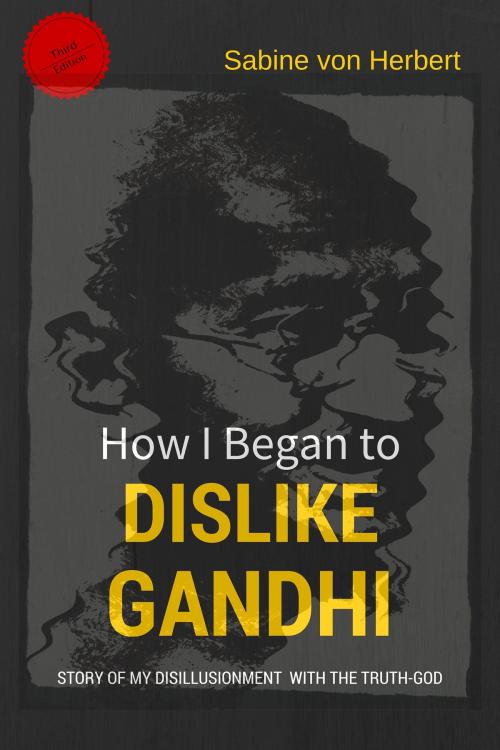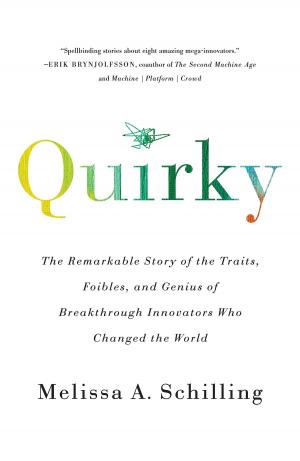How I Began to Dislike Gandhi: The Story of My Disillusionment With The Truth-God
Nonfiction, Social & Cultural Studies, Political Science, Politics, History & Theory, Biography & Memoir| Author: | Sabine von Herbert | ISBN: | 9781311970145 |
| Publisher: | Sabine von Herbert | Publication: | June 6, 2016 |
| Imprint: | Smashwords Edition | Language: | English |
| Author: | Sabine von Herbert |
| ISBN: | 9781311970145 |
| Publisher: | Sabine von Herbert |
| Publication: | June 6, 2016 |
| Imprint: | Smashwords Edition |
| Language: | English |
Mahatma Gandhi - Mohandas Karamchand Gandhi (1869-1948) - is one of the most influential political figures of the twentieth century.
Like many others in the West, Gandhi's ideas have captivated a young, bright, politically active girl from a western German city during the mid-1980s. More than anyone else Gandhi influenced her on her ideas of democracy, peace, non-violence, decentralization, equality, environmentalism, and justice. For two decades she followed Mahatma Gandhi wholeheartedly. But when she began to read Gandhi's own writings, to her shock, she realized that her idol was not necessarily the same as she thought him to be. This book is a personal account of what she has found out: Gandhi to be a conservative, authoritarian, patriarchal, Victorian reactionary. In seven short chapters, this book polemically puts Gandhi in a new light, mostly by quoting from his own colossal writings that altogether comprise of more than 49,000 pages. While this is not a biography of Gandhi in a conventional sense, this could be a thematic biography written in an autobiographical style.
“How I Began to Dislike Gandhi” differs from other books on Gandhi on a few grounds. First of all, there are less interpretations in this book. Readers can reach to their own conclusions by reading what Gandhi said or wrote. At best this book is a systematic or thematic ordering of Gandhi's writings on those subjects that were crucial for the author when she embraced and later distanced from Gandhi. Secondly, this is different from most writings on Gandhi - they either want the reader to be a follower or a hater of Gandhi. Here, despite the provocative title and overall theme of the book, it presupposes a balanced reader, not a fanatic follower or a rabid hater. The author wishes and hopes that the conclusion she reaches after reading Gandhi's writings would make sense to many fellow travelers. Thirdly, this book is written lucidly. It does not demand a significant understanding of Gandhi or India. It does not enter to any philosophical or ethical arguments. If at all there are some observations most of it is commonsensical.
This book clearly demonstrates that the worst critic of Mahatma Gandhi was not the British empire but himself!
“This is only a reading of Gandhi, of some issues he dealt with, which were pertinent in my life for many years. This is a personal account of disillusionment and my survival of it. Of certain fundamental issues that form the basis of my everyday life-like what I eat, how I interact with others, how I share my body, and what I consume. This is a political autobiography of a commoner.”
Sabine von Herbert is a pseudonym of an internationally published academic based at a German university.
Mahatma Gandhi - Mohandas Karamchand Gandhi (1869-1948) - is one of the most influential political figures of the twentieth century.
Like many others in the West, Gandhi's ideas have captivated a young, bright, politically active girl from a western German city during the mid-1980s. More than anyone else Gandhi influenced her on her ideas of democracy, peace, non-violence, decentralization, equality, environmentalism, and justice. For two decades she followed Mahatma Gandhi wholeheartedly. But when she began to read Gandhi's own writings, to her shock, she realized that her idol was not necessarily the same as she thought him to be. This book is a personal account of what she has found out: Gandhi to be a conservative, authoritarian, patriarchal, Victorian reactionary. In seven short chapters, this book polemically puts Gandhi in a new light, mostly by quoting from his own colossal writings that altogether comprise of more than 49,000 pages. While this is not a biography of Gandhi in a conventional sense, this could be a thematic biography written in an autobiographical style.
“How I Began to Dislike Gandhi” differs from other books on Gandhi on a few grounds. First of all, there are less interpretations in this book. Readers can reach to their own conclusions by reading what Gandhi said or wrote. At best this book is a systematic or thematic ordering of Gandhi's writings on those subjects that were crucial for the author when she embraced and later distanced from Gandhi. Secondly, this is different from most writings on Gandhi - they either want the reader to be a follower or a hater of Gandhi. Here, despite the provocative title and overall theme of the book, it presupposes a balanced reader, not a fanatic follower or a rabid hater. The author wishes and hopes that the conclusion she reaches after reading Gandhi's writings would make sense to many fellow travelers. Thirdly, this book is written lucidly. It does not demand a significant understanding of Gandhi or India. It does not enter to any philosophical or ethical arguments. If at all there are some observations most of it is commonsensical.
This book clearly demonstrates that the worst critic of Mahatma Gandhi was not the British empire but himself!
“This is only a reading of Gandhi, of some issues he dealt with, which were pertinent in my life for many years. This is a personal account of disillusionment and my survival of it. Of certain fundamental issues that form the basis of my everyday life-like what I eat, how I interact with others, how I share my body, and what I consume. This is a political autobiography of a commoner.”
Sabine von Herbert is a pseudonym of an internationally published academic based at a German university.















